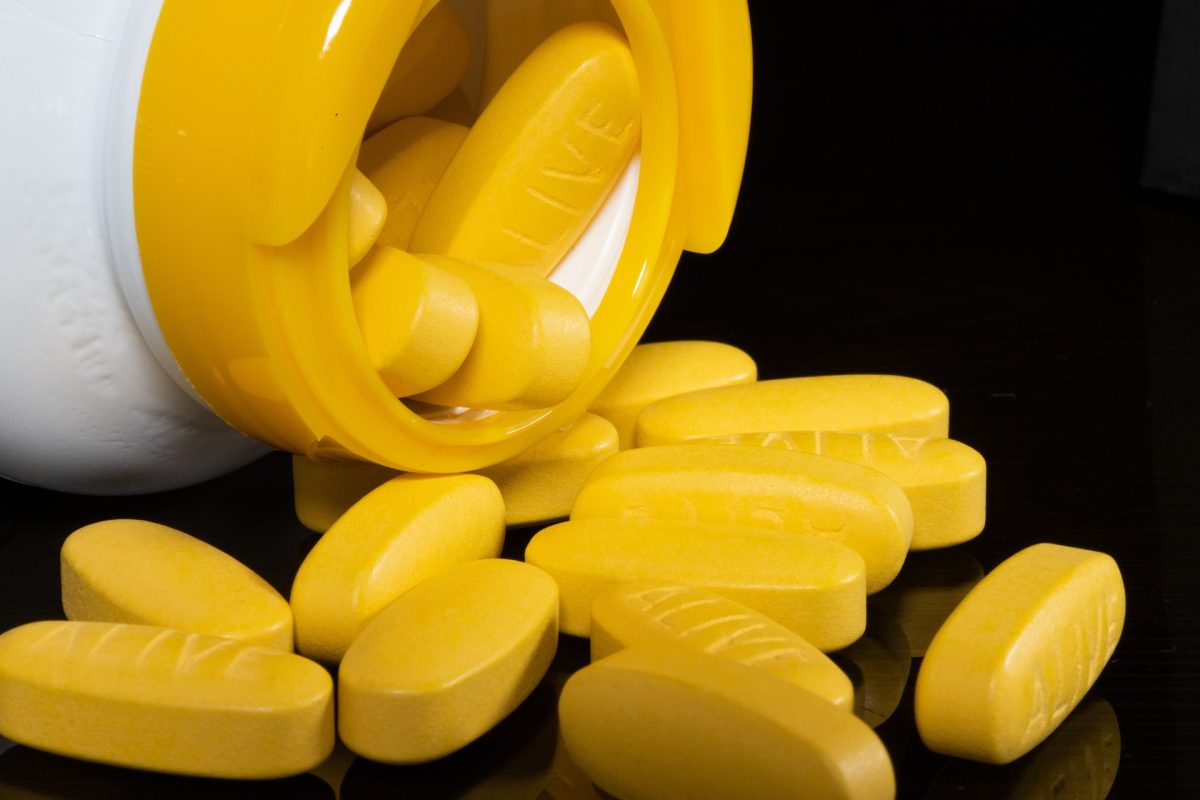by Enoch Daniel
5 minutes
Compliance In Pharma Manufacturing 2025: Key Regulations And Best Practices You Need to Know
Compliance plays an important role in the pharmaceutical industry. Let’s delve into why regulatory compliance should be the focus of all companies.

In a state-of-the-art pharmaceutical lab, scientists watch as AI-driven sensors continuously monitor critical production metrics. When a subtle variation is detected, the system immediately alerts quality teams, ensuring no batch leaves the line unless every parameter meets global standards. This scenario demonstrates how innovation and regulatory compliance now go hand-in-hand. The pharmaceutical industry is heavily regulated, and each part of the pharmaceutical manufacturing process is overseen by different regulatory mechanisms. While these stringent requirements can sometimes hamper smooth manufacturing and create problems for pharmaceutical companies, they are designed to ensure safety, efficacy, and quality.
Compliance isn’t just bureaucracy; it’s a strategic framework for safety and trust. Today, leading pharma companies blend harmonized global guidelines like GMPs and ICH quality frameworks with risk-based quality models like ICH Q9 and digital tools such as AI, blockchain, and IoT to stay ahead of evolving regulations. Non-compliance can create severe problems for pharmaceutical companies, such as product recalls, fines, warning letters, and facility shutdowns. While the goal should be to avoid these problems, at the end of the day, the key regulations are implemented to ensure product safety and legal adherence. Compliance plays an extremely important role in the pharmaceutical industry. Let’s delve into why regulatory compliance should be the focus of all Pharma manufacturing companies.
Global Compliance Frameworks
Pharmaceutical GMP is anchored by the US FDA and EU regulations, which effectively set global quality benchmarks. For example, the FDA’s Current Good Manufacturing Practice rules impose minimum controls on facilities, equipment and processes so that each drug is consistently safe and meets its label claims.
Likewise, the EU’s GMP guidelines apply to any manufacturer supplying the EU market, no matter where in the world it operates. The European Medicines Agency (EMA) coordinates inspections and harmonizes these standards across member states.
Because the US and EU markets are so large, their GMP frameworks become international benchmarks; many regulators and WHO guidelines align with the FDA/EU GMP to ensure consistent quality worldwide.
What is the role of compliance?
Product Safety
Compliance in pharmaceutical manufacturing is necessary for patient safety. Regulatory compliance ensures the products are safe for consumption and protects patients from potential harm caused by defective or substandard medications.
Legal adherence
Regulatory compliance also decreases the risk of litigation for pharmaceutical companies. It decreases liability related to product safety and ethical breaches. Furthermore, it allows companies to file for intellectual property rights, ensuring their research breakthroughs are safeguarded.
Trust and reliability
Regulatory compliance fosters trust among stakeholders, customers, healthcare providers, regulators, and investors because it shows the company is dedicated to following established ethical standards. It also creates a better brand image, resulting in improved brand reputation and higher customer loyalty.
Key Regulations: Overview of key regulatory requirements in pharmaceutical manufacturing
Key regulations vary across regions. Therefore, companies operating in different regions have to follow different requirements. Here are some of the key regulations that are enforced:
Good manufacturing practices
Compliance with good manufacturing practices (GMPs) allows companies to consistently produce high-quality products. These are designed to minimize the risks involved in pharmaceutical manufacturing.
International standards
Companies also need to comply with international regulations set by global bodies. For example, the World Health Organization and the European Medicines Agency have specific guidelines for pharmaceutical manufacturing.
Food and Drug Administration regulations
Companies operating or selling in the United States need to follow the stringent guidelines of the FDA. The FDA regulations include guidelines on the development, testing, approval, and post-sale surveillance of products.
Clinical trial compliance
Companies need to adhere to good clinical practice (GCP) guidelines and patient safety guidelines. Compliance with these key regulations ensures the company adheres to ethical standards. These guidelines protect the safety, health, and rights of people participating in clinical studies.
Marketing compliance
All marketing materials published by pharmaceutical companies need to follow certain benchmarks. For example, all marketing materials and promotional activities should be 100% truthful, should include all information about side effects, should include disclosures, etc.
Pharmacovigilance guidelines
Pharmaceutical companies also need to develop systems to monitor, detect, assess, and prevent any adverse side effects of their pharmaceutical products. They also need to develop systems that handle such instances in post-sales customers.
Best Practices for Compliance
Regulatory compliance can be easily implemented in any pharmaceutical company. Here are some best practices that allow you to integrate compliance:
Conduct internal and external audits
Companies can conduct regular risk assessments to identify compliance risks. Internal audits can be performed to make sure employees meet the company's compliance expectations. External audits can be performed by hiring consultants to ensure the company's compliance policies and processes meet industry standards.
Implement risk management systems
Regular audits can be performed to identify risks. Then, management or consultants can identify mitigation strategies and implement them. The development of risk management systems allows pharmaceutical companies to get ahead of potential regulatory mishaps and avoid unsavory consequences.
Stay updated with key regulatory changes
Companies can create teams responsible for identifying any key regulatory changes. Alternatively, this task can be allocated to management. Staying updated with any regulatory changes allows companies to change any processes not meeting standards. The faster you learn about a change, the faster you can find a solution and implement it, allowing you to stay ahead of the competition and retain the trust of regulatory bodies.
Leverage compliance technologies
Quality management systems, standard operating procedures, process analysis technology, and other technologies can be used to track manufacturing steps. These tools can also be used to determine whether certain steps in manufacturing comply with key regulations.
Risk-Based Compliance Models
Risk-based compliance models enable pharmaceutical companies to allocate resources more effectively by focusing on the most critical aspects of operations. A cornerstone of this approach is ICH Q9 Quality Risk Management (QRM), which outlines principles and tools to assess, control, and monitor quality risks across the product lifecycle. The FDA’s risk-based inspection framework also reflects this philosophy, prioritizing inspections for facilities with higher risk profiles, such as those with complex processes or prior compliance issues.
In analytical development, a risk-based approach ensures that analytical methods are scientifically justified, robust, and appropriate for their intended use throughout their lifecycle. Similarly, risk-based commissioning and qualification (C&Q) processes emphasize identifying critical quality attributes (CQAs) and focusing qualification efforts on systems that directly impact product quality and regulatory compliance.
Collectively, these models help companies streamline operations, enhance regulatory readiness, and reduce the likelihood of compliance failures, driving both operational efficiency and patient safety.
Role of Digitization in Compliance
Digital tools are rapidly transforming how pharma meets GMP. Modern electronic QMS (eQMS) platforms unify SOPs, training, deviations and CAPA with built-in version control and audit trails. FDA 21 CFR Part 11 even permits compliant e-records and e-signatures, treating digital records as equivalent to paper. In practice, paper batch logs have been replaced by secure electronic batch records (EBRs), which create timestamped, traceable production data. Connected sensors and AI-driven analytics now monitor processes in real time. By continuously analyzing live data, these systems can flag anomalies or quality trends early. Altogether, digitization enhances data integrity and traceability, automates compliance tracking, and sharply reduces manual transcription errors.
Conclusion
Regulatory compliance is a serious topic in the pharmaceutical industry. As this article highlighted, the role of digitalization in regulatory compliance, regulatory compliance allows pharmaceutical companies to build customer trust, ensure patient safety, and mitigate litigation. Companies need to adhere to several different guidelines, such as GMPs, GCPs, marketing guidelines, and so forth. However, adhering to these can positively impact the brand image.
Compliance in pharmaceutical manufacturing is time-consuming but necessary. Companies can establish protocols, stay updated with regulatory changes, leverage technology, and train employees to ensure they comply with key regulations.
FAQs
1. Are the regulatory compliance guidelines the same in all countries?
Regulatory compliance guidelines vary from one region to another. However, most regulatory guidelines and good manufacturing practices are based on specific rules designed to improve product quality, safety, and consistency.
2. What are the consequences of not adhering to key regulations?
Non-compliance with regulations may lead to fines, facility closures, product recalls, litigation, loss of IP rights, regulatory warnings, audits, loss of market approval, etc.
3. How can pharmaceutical companies ensure personnel compliance?
Companies can provide regulatory training programs to all personnel. These programs can provide detailed guidelines and information on how personnel can adhere to regulatory policies
4. What are the key regulatory bodies for pharma manufacturing?
Major regulatory bodies include the U.S. FDA, European Medicines Agency (EMA), World Health Organization (WHO), Pharmaceutical and Medical Devices Agency (PMDA, Japan), and Central Drugs Standard Control Organization (CDSCO, India). These agencies set and enforce Good Manufacturing Practice (GMP) standards globally.
5. How to ensure ongoing GMP compliance?
Maintain updated SOPs, conduct regular internal audits, provide continuous employee training, implement quality management systems (QMS), and stay informed about regulatory changes. Leveraging digital tools and conducting risk-based assessments also support ongoing compliance.




